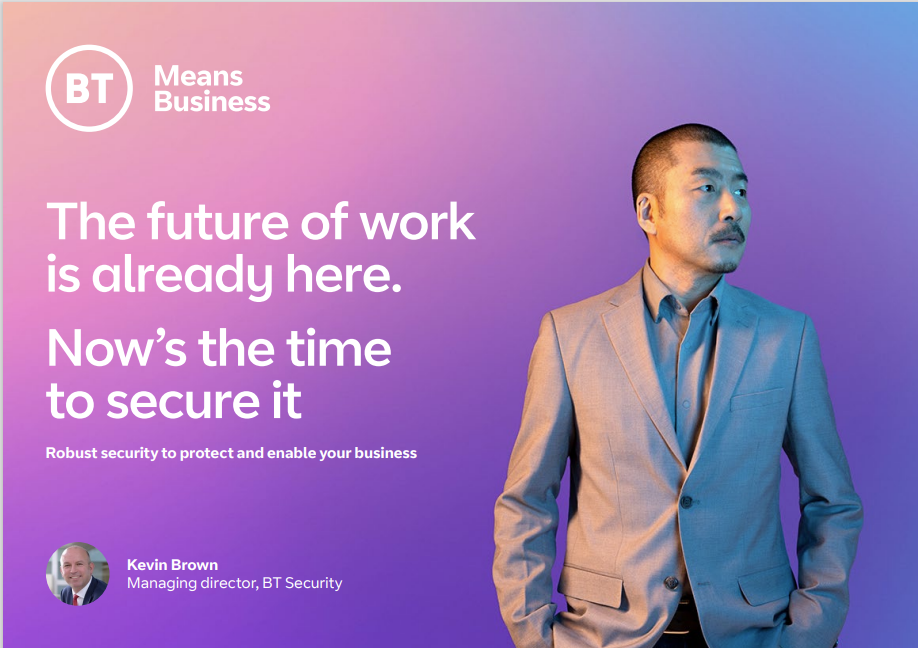GSMA partners with IBM, Vodafone on Post-Quantum Telco Network Taskforce
The three organisations will work together to create a roadmap to implement quantum-safe networking


The GSMA has teamed up with IBM and Vodafone to form the GSMA Post-Quantum Telco Network Taskforce, which the trio say will support the roadmap for post-quantum cryptology.
Their aim is to help define policy, regulation, and operator business processes for the enhanced protection of telecommunications as quantum computing takes on a more prominent role.
Instead of relying on bits for calculation like today’s computers, quantum machines leverage the exponential power of quantum bits, called qubits. That involves a simultaneous mix of 0s and 1s and opens up the possibility of solving complex of problems that today’s supercomputers struggle with.
The Taskforce has been set up to help navigate these new waters. The team will help define requirements, identify dependencies, as well as create the roadmap to implement quantum-safe networking, to help mitigate potential risks.
“The GSMA Taskforce’s goal is to bring together leading global communication services providers with experts from IBM, Vodafone, and other operators and ecosystem partners to understand and implement quantum-safe technology,” said Alex Sinclair, Chief Technology Officer at the GSMA.
These future quantum-safe controls will aim to protect sensitive business information and consumer data from attackers that harvest present-day data for later decryption.
RELATED RESOURCE

The future of work is already here. Now’s the time to secure it.
Robust security to protect and enable your business
That will be no small feat, either. In its announcement, the GSMA noted the World Economic Forum’s recent estimation that more than 20 billion devices will need to be upgraded or replaced in the next 10-20 years in order to use the new forms of quantum-safe encrypted communication.
Get the ITPro daily newsletter
Sign up today and you will receive a free copy of our Future Focus 2025 report - the leading guidance on AI, cybersecurity and other IT challenges as per 700+ senior executives
“By working together to establish consistent policies, we can define quantum-safe approaches that protect critical infrastructure and customer data, complementing our ongoing security efforts to increase resiliency in future networks,” Sinclair added.
Back in July 2022, the U.S. National Institute of Standards and Technology (NIST) announced it had chosen the first four post-quantum cryptography algorithms to be standardised for cyber security in the quantum computing era.
These were designed to rely on the computational difficulty of problems from the mathematical areas such as lattices, isogenies, hash functions, and multivariate equations, and protect current systems from future quantum machines.
Taskforce member IBM, which boasts the world’s largest fleet of cloud-accessible quantum computers, contributed to the development of three of these four chosen algorithms.
“Given the accelerated advancements of quantum computing, data and systems secured with today’s encryption could become insecure in a matter of years,” warned Scott Crowder, Vice President of IBM Quantum Adoption and Business Development.
“IBM is pleased to work with the GSMA Post-Quantum Telco Network Taskforce members to prioritize the telco industry’s move to adopt quantum-safe technology.”
Dan is a freelance writer and regular contributor to ChannelPro, covering the latest news stories across the IT, technology, and channel landscapes. Topics regularly cover cloud technologies, cyber security, software and operating system guides, and the latest mergers and acquisitions.
A journalism graduate from Leeds Beckett University, he combines a passion for the written word with a keen interest in the latest technology and its influence in an increasingly connected world.
He started writing for ChannelPro back in 2016, focusing on a mixture of news and technology guides, before becoming a regular contributor to ITPro. Elsewhere, he has previously written news and features across a range of other topics, including sport, music, and general news.
-
 Get started on post-quantum encryption, organizations warned
Get started on post-quantum encryption, organizations warnedNews The UK's national cybersecurity agency is urging companies to begin preparing themselves for quantum threats by 2035.
By Emma Woollacott
-
 NIST aims to quantum-proof encryption with new algorithms
NIST aims to quantum-proof encryption with new algorithmsNews Three algorithms are now in draft and more are on the way to bolster enterprise defenses
By Richard Speed
-
 C-suites consider quantum a serious threat and "amazing" deepfake attacks are just 'months away'
C-suites consider quantum a serious threat and "amazing" deepfake attacks are just 'months away'News Deepfake technology has matured at a rapid rate, and video scams are likely to be a on par with the more convincing voice-only campaigns very soon, one expert says
By Rory Bathgate
-
 How quantum computing could change cyber security
How quantum computing could change cyber securitySponsored The huge leap in computing performance from quantum computing poses a threat to traditional security, but there are steps you can take to guard against the quantum future
By IT Pro
-
 US unveils next-gen encryption tools to withstand quantum computing attacks
US unveils next-gen encryption tools to withstand quantum computing attacksNews The National Institute of Standards and Technology (NIST) hopes to offer a variety of tools for quantum-proof encryption
By Zach Marzouk
-
 BT and Toshiba address QKD concerns with new trial
BT and Toshiba address QKD concerns with new trialNews The National Cyber Security Centre (NCSC) previously raised concerns of potential attacks
By Sabina Weston
-
 AWS launches quantum random number generator
AWS launches quantum random number generatorNews The cloud giant is using an Australian university’s technology to help customers access random numbers for experiments through an API
By Zach Marzouk
-
 Quantum security: The end of security as we know it?
Quantum security: The end of security as we know it?In-depth It’s a core component of the developing DARQ technologies, but if a quantum computer performs as expected it could wreak havoc on cyber security
By David Howell

